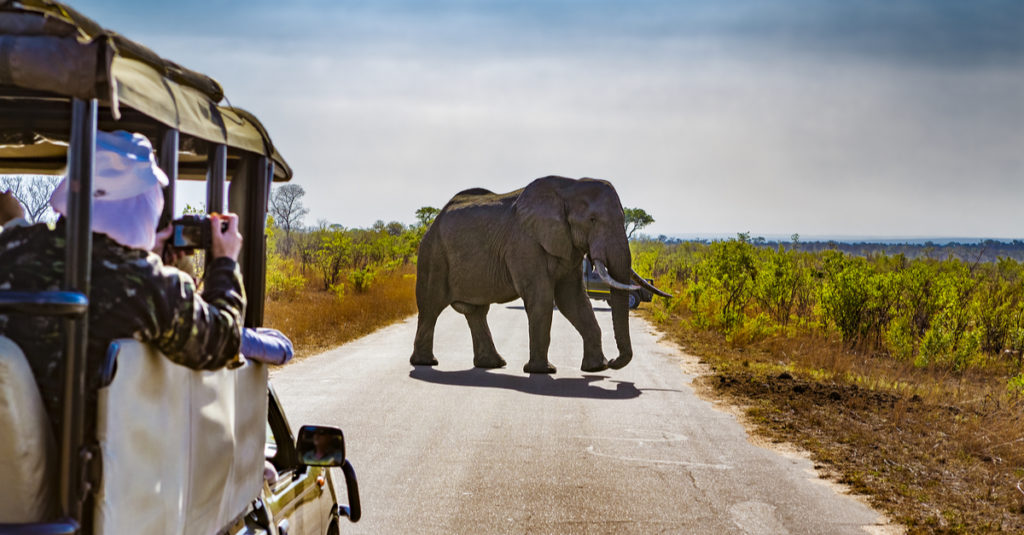The pandemic has hit tourism to Africa hard. The Gambia, in West Africa, has a population of just over 2 million, with many living in rural poverty. Tourism has been a mainstay of the economy since the first charter flights arrived. Often referred to as The Smiling Coast, it is the smallest country on the continent.
Tourism accounts for 16-20% of GDP and provides over 100,000 direct and indirect jobs. In March The Gambia suspended flights from Europe and closed down the tourism industry in order to halt the spread of Coronavirus.
There is very little domestic tourism in The Gambia and its border with Senegal, which surrounds it, is closed. The tourism industry in The Gambia is closed. Closing the borders has hurt livelihoods, but it has been effective against Coivid-19. The first case was reported on March 17th. To July 6th there have been 61 confirmed cases, of which 27 have recovered and three have died. Reopening, given the success of the closure strategy, would be a hard choice for the government to make.
The latest African Union study reports that “Tourism employs more than a million people in each of the following countries: Nigeria, Ethiopia, South Africa, Kenya, and Tanzania. … and more than 20 per cent of total employment in Seychelles, Cape Verde, São Tomé and Príncipe, and Mauritius.” Overall, tourism contributed $194.2 billion or 8.5% to Africa’s GDP in 2018. The African Union concluded that “Under the average [realistic] scenario, the tourism and travel sectors in Africa could lose at least $50 billion… and at least two million direct and indirect jobs.”
A crisis which is depriving holidaymakers of their holidays is depriving hosts of their livelihoods.
In South Africa Coronavirus cases have passed 200,000, with 3,720 deaths by 9th July. The government has restricted inter-provincial and international travel in order to contain the virus, but this has had a major impact on the tourism sector. According to South Africa’s Department of Statistics: “The tourism sector’s 686 596 employees outnumber the respective workforces of utilities (118 000 employees) and mining (444 000 employees). In 2016 total employment in South Africa (both formal and informal) amounted to 15,8 million workers. Of these, 4,4% (or 1 in every 23) were directly employed in the tourism sector, a rise from the 3,8% recorded in 2005.”
The South African government’s new post-apartheid tourism policy published in 1996 and still current, was the first government policy to adopt a Responsible Tourism approach. The new government recognised the importance of tourism in creating jobs, particularly in rural areas. Tourism outperformed other key industries in terms of job creation, adding just over 40 000 net new jobs to the economy over the five-year period from 2012 to 2016.
I recently interviewed Derek Hanekom, Minister of Tourism in South Africa 2014-2019, about the importance of tourism, top post-apartheid South Africa particularly in rural areas. You can watch the video here.
The risks and challenges of permitting travel and tourism to reopen are large; governments have to balance the public health and unemployment risks. People impoverished by the loss of employment suffer too, and in rural areas, there is rarely alternative employment.
Travel agents and tour operators in the source markets that sell Africa need to think hard about what they can do to assist local people and their wildlife to survive so that they are there to be visited in the future. It makes good business sense to do what we can to protect the attraction, the people and wildlife, which is at the core of our business.
These are the views of Justin Francis of Responsible, Glynn O’Leary of TFPD and Richard Vigne of Ol Pejeta about why travellers, accommodation providers, operators and agents should be donating to communities and their natural and cultural heritage:
There are many examples of businesses in destinations which are fundraising to support local people and wildlife. There are just a few here.
If you operate outbound as an operator or agent, consider fundraising to support your ‘product’. It is the right thing to do, and it has commercial value in keeping your business in front of your clients and demonstrating your ethics and the strength of your relationships, your partnerships, with the destination(s) you sell.
This year’s World Responsible Tourism Awards have been adapted to recognise businesses, individuals, destinations and organisations which have taken responsibility to address the challenge of COVID-19. Find out more about the Awards and nominate online by the end of July.
Only those nominated can be recognised by the judges, you can nominate yourself and others, and you can nominate as many as you wish.
You may also be interested in…
- Does the COVID-19 emergency mean over-tourism is over?
- How do we redesign tourism for a sustainable future?
- Will 2020 define the future of tourism?
